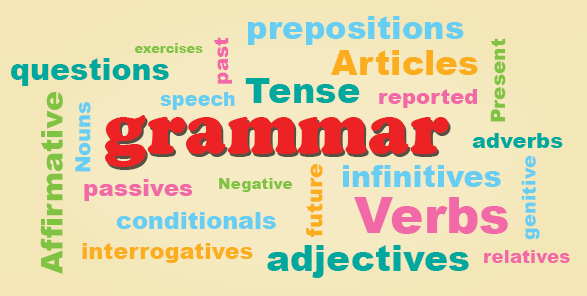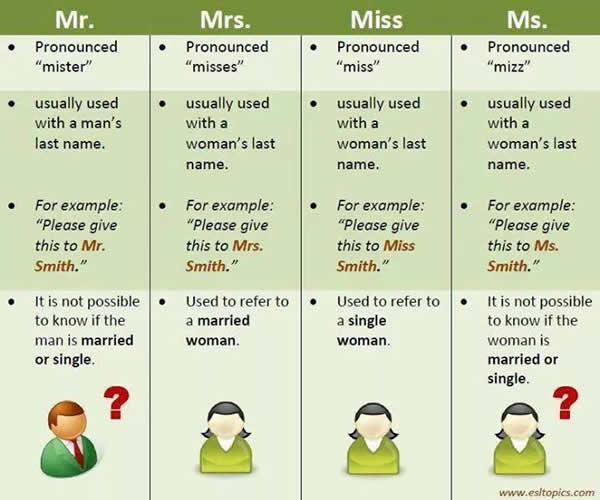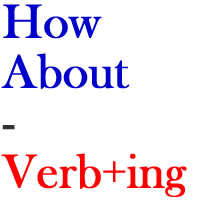Category: Grammar
Meanings and Uses of ‘Agenda’, ‘Diary’, ‘Schedule’, ‘Timetable’ Uses and differences; Agenda is a list of items to be discussed at a meeting;
How to Use ‘Take’ and Get’ Differences between take and get, uses of take and get; TAKE take an exam take an English course take some Japanese lessons take …
Uses and Differences – ‘For’, ‘During’, ‘While’ For Usage; We use for + a period of time to say how long something goes on.
Uses of ‘Mr.’, ‘Mrs.’, ‘Miss.’ and ‘Ms.’ Mr.; usually used with a man’s last name. Mrs.; usually used with a woman’s last name. Miss.; usually used with a woman’s …
List of Common and Useful Linking Words What are linking words? Linking words are words that join clauses into sentences.
Past Continuous – Detailed Expression and Examples (I was doing) Follow the list for detailed expression and examples;
Differences Between “On time” and “In time” on time; at the planned time, neither early nor late in time; with time to spare, before something happens
Uses of ‘How about’ (verb-ing) You’re asking someone their opinion on something or if they would like to do something.
Uses of ‘Also’, ‘As well’ and ‘Too’ (With Differences) Also is more formal than as well and too, and it usually comes before the main verb or after be: – …
Verbs Followed By Infinitives These verbs followed by infinitives; agree, appear, arrange, care, claim, decide, demand, deserve, fail, get (be allowed to), happen, hesitate, hope, intend, learn, manage, offer, …










